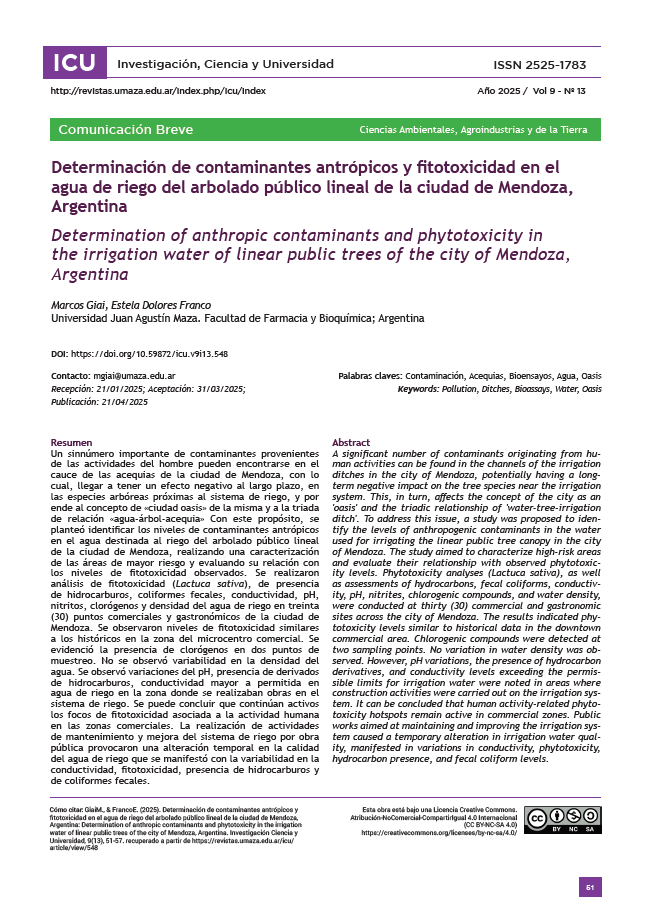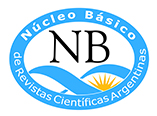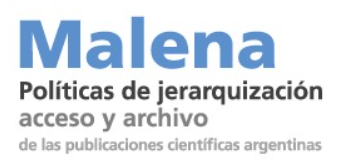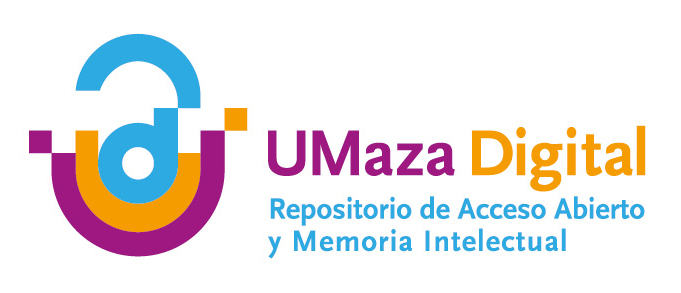DETERMINATION OF ANTHROPIC CONTAMINANTS AND PHYTOTOXICITY IN THE IRRIGATION WATER OF LINEAR PUBLIC TREES OF THE CITY OF MENDOZA, ARGENTINA
Determination of anthropic contaminants and phytotoxicity in the irrigation water of linear public trees of the city of Mendoza, Argentina
Keywords:
Pollution, Ditches, Bioassays, Water, Oasis, Pollution, Ditches, Bioassays, Water, OasisAbstract
The presence of anthropogenic contaminants in the city's irrigation ditches would directly affect the health of tree species and would be detrimental to the concept of an “oasis” city and the socio-cultural function of the irrigation ditches in the city of Mendoza. It was proposed to determine the levels of anthropogenic contaminants in the irrigation water of the linear public trees of the city of Mendoza, characterizing the risk areas therein and their relationship with the levels of phytotoxicity. A descriptive and longitudinal study was carried out. Analysis of phytotoxicity, hydrocarbons, fecal coliforms, conductivity, pH, nitrites, chlorogens and density of irrigation water in thirty (30) commercial and gastronomic points in the city of Mendoza. Phytotoxicity levels similar to historical levels were observed in the micro-shopping center area. The presence of chlorogens was evident at two sampling points. No variability in water density was observed. Variations in pH, presence of hydrocarbon derivatives, and conductivity greater than permitted in irrigation water were observed in the area where works were being carried out on the irrigation system. It can be concluded that the sources of phytotoxicity associated with human activity in commercial areas continue to be active. The execution of maintenance and improvement activities of the irrigation system by public works caused a temporary alteration in the quality of irrigation water that manifested itself with the variability in its measured levels.
Downloads

Published
How to Cite
Issue
Section
Categories
License
Copyright (c) 2025 Marcos Giai, Estela Franco

This work is licensed under a Creative Commons Attribution-NonCommercial-ShareAlike 4.0 International License.





















